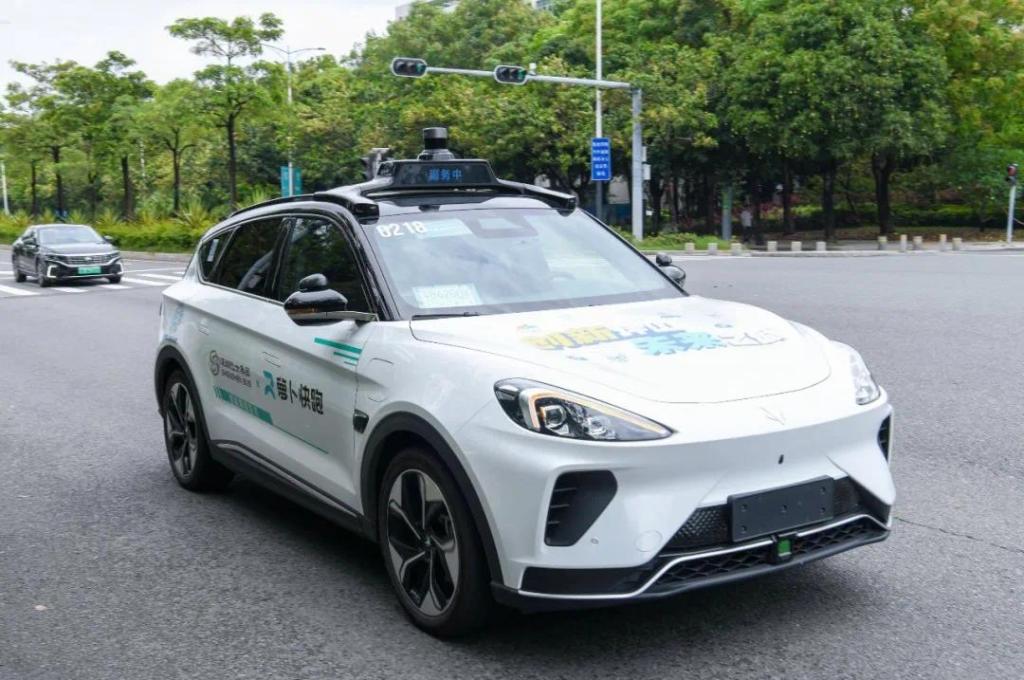
Baidu's Apollo Go Launches Driverless Fleet in Abu Dhabi, Setting Stage for Middle East Robotaxi Dominance by 2026
Baidu’s Robotaxis Are Heading to Abu Dhabi—But Can They Deliver?
A Bold New Front in the Race for Global Autonomous Dominance
On March 29, 2025, Baidu officially announced a strategic partnership between its autonomous ride-hailing arm Apollo Go and UAE-based Autogo. The goal: to launch the largest fully driverless fleet in Abu Dhabi by 2026. It’s a significant move—not only for Baidu’s global ambitions but for the evolution of smart mobility in one of the world’s fastest-modernizing regions.
The collaboration will initially roll out dozens of robotaxis in select districts of Abu Dhabi, under the supervision of the city’s Integrated Transport Centre. If all goes according to plan, this pilot will expand into full commercial operations, making Apollo Go one of the first major players to bring autonomous ride-hailing to the Middle East at scale.
But while the announcement has clear implications for mobility innovation, investors and industry watchers are asking a bigger question: can Baidu turn technological momentum into sustainable, global business success?

Why Abu Dhabi—and Why Now?
Smart Cities Need Smart Partners
Abu Dhabi is actively investing in smart infrastructure, clean energy, and autonomous transport. That puts it in a unique category of cities eager to experiment with—and eventually adopt—next-gen mobility. For Baidu, it’s a strategic fit: a government that supports innovation, a relatively controlled urban environment, and a high appetite for green, AI-driven transport solutions.
Apollo Go isn’t starting from scratch. With 150 million kilometers of safe autonomous driving and over 10 million rides completed in China, its system is among the most tested globally. And its track record isn’t just long—it’s safe. Baidu claims its robotaxi safety rate exceeds that of human drivers by a factor of 10.
Behind the Wheel: What This Means for Baidu
From Ads to Autonomy: A New Growth Chapter
This partnership marks more than a geographical expansion. For Baidu, it's a bid to diversify away from its slowing advertising business and toward a long-term, AI-powered future. As autonomous vehicle revenue grows globally—projected to surpass $25 billion by 2030—Apollo Go is being positioned as a centerpiece of Baidu’s next chapter.
Crucially, Baidu’s sixth-generation robotaxi model has driven down vehicle costs to under $30,000—significantly cheaper than US-based rivals like Waymo. If these unit economics hold in new markets, Baidu could have a global cost advantage that reshapes pricing models in the robotaxi space.
What Investors Should Watch Closely
Opportunities: Global Scaling and Strategic Alignment
For investors, the upside lies in Baidu's ability to replicate its domestic success in international markets. The strategic fit with Autogo and support from Abu Dhabi’s regulators make this one of the more promising international pilots to date.
Key potential advantages include:
- First-mover edge in the Middle East’s mobility market
- Alignment with government-backed smart city agendas
- Access to local regulatory infrastructure through Autogo
- Cost leadership through in-house robotaxi manufacturing
Risks: Profitability, Execution, and Regulatory Uncertainty
However, the challenges are just as real. The global robotaxi sector has yet to prove a viable path to profitability, and Baidu is no exception. While the technology is proven, scaling it internationally will test its adaptability.
Potential headwinds include:
- Unpredictable local regulations and road environments
- Public trust and adoption rates in a new cultural context
- Pressure to deliver financially in a high-CAPEX industry
- Competitive responses from Waymo, Pony.ai, and others
What This Signals for the Industry
Decentralizing the Innovation Race
This move underscores a growing trend: China’s tech leaders are no longer just building for home markets. They are exporting fully packaged innovation—hardware, software, and operations—as turnkey solutions for global urban transformation.
If Baidu succeeds in Abu Dhabi, the ripple effects could be significant:
- Emerging markets may look to the UAE as a model for integrating autonomous mobility.
- Regulatory bodies worldwide may accelerate harmonization of AV policies.
- Cost efficiency could become a new front in the AV arms race, challenging US-based incumbents.
The Road Ahead: High Stakes and Higher Expectations
Baidu’s deal with Autogo is a litmus test for whether autonomous driving can transition from showcase demos to sustainable business models—outside the comfort zone of home markets.
If this partnership succeeds, it could unlock a new era of global expansion for Chinese autonomous mobility. If it stumbles, it will add to growing doubts about whether robotaxis can ever truly scale beyond the lab.